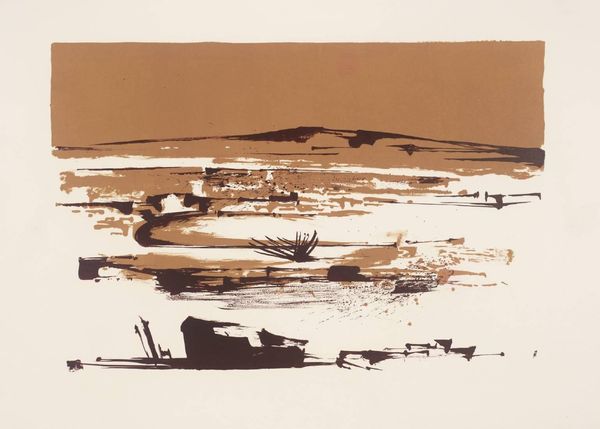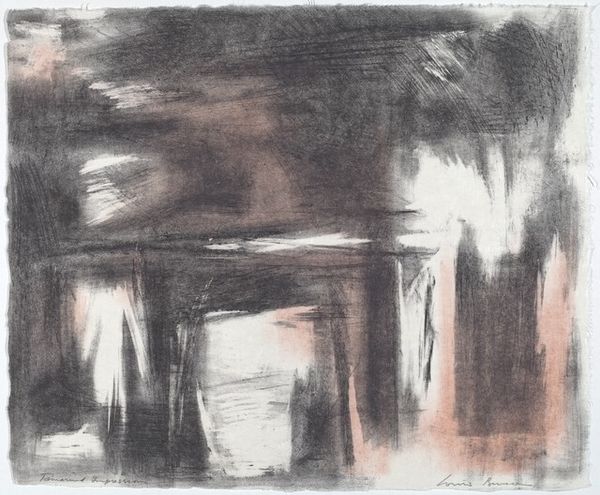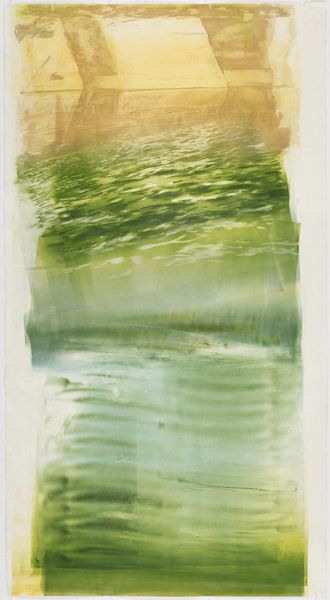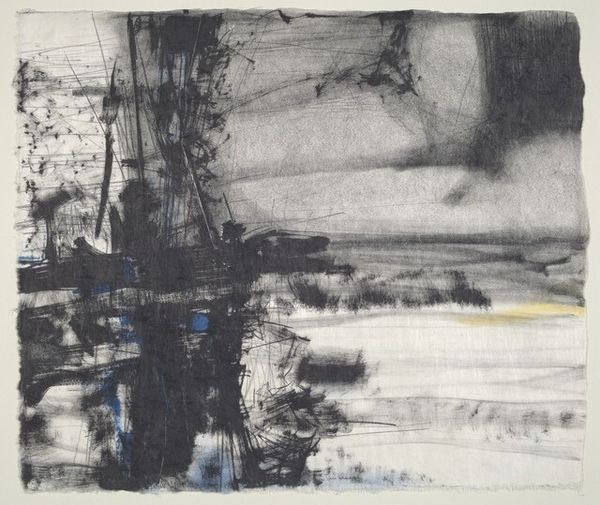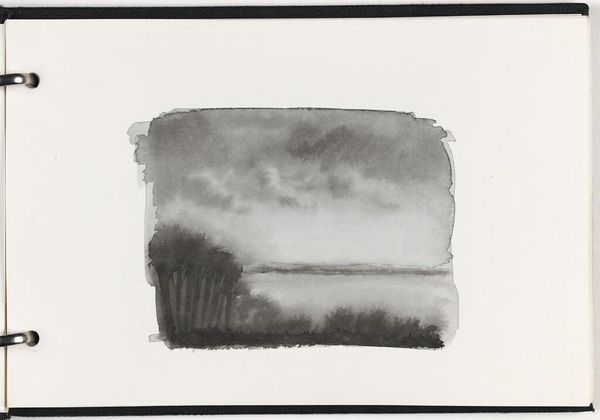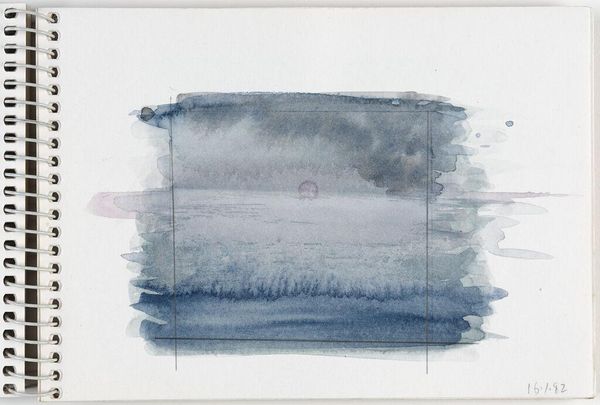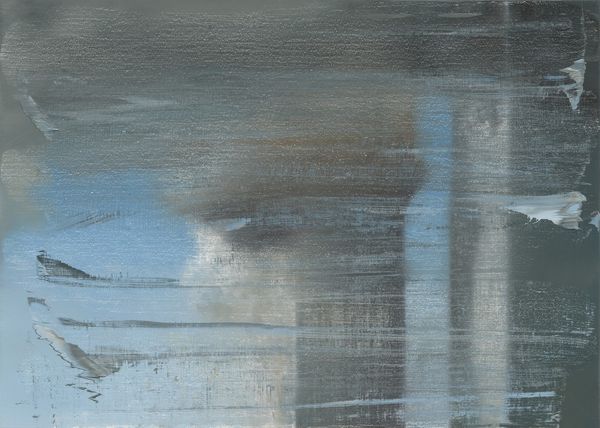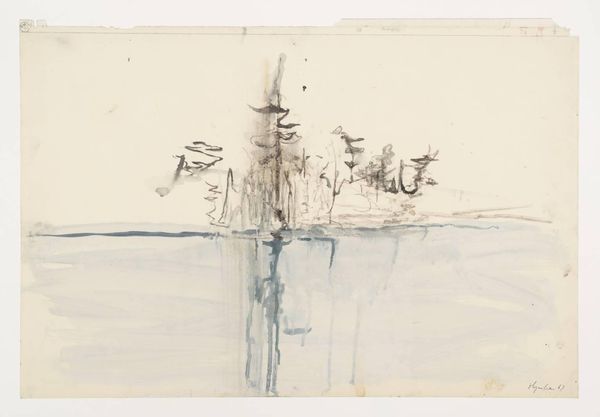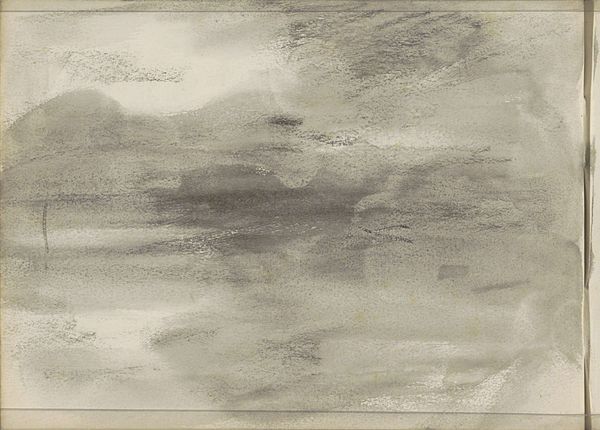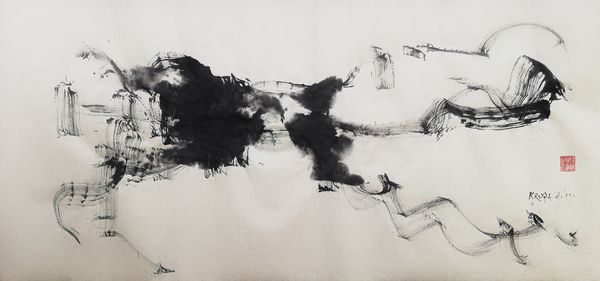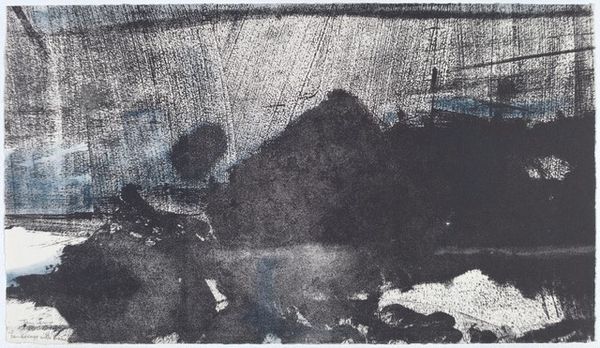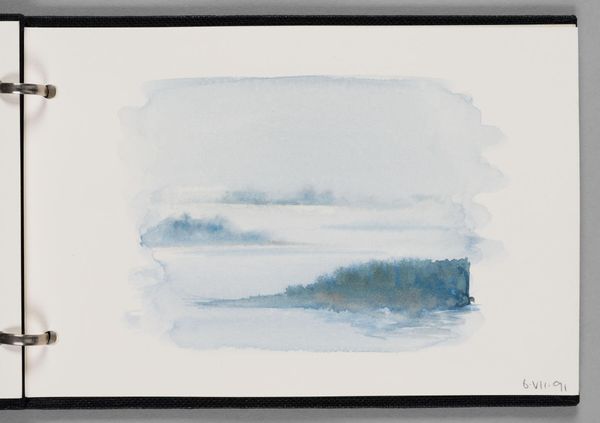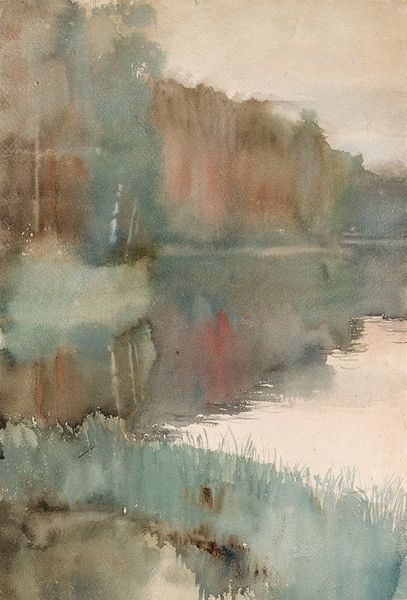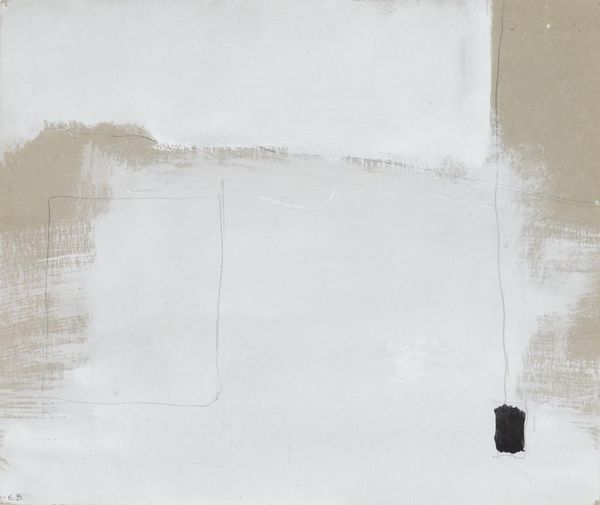
painting, watercolor, ink
#
sky
#
rough brush stroke
#
painting
#
pencil sketch
#
fluid brush stroke
#
landscape
#
form
#
watercolor
#
ink
#
orientalism
#
abstraction
#
line
#
modernism
#
watercolor
Dimensions: 46 x 35 cm
Copyright: Creative Commons NonCommercial
Editor: Here we have Alfred Freddy Krupa’s "Early Sumi-e," created in 1994 using ink and watercolor. It's a very minimalist landscape, almost dreamlike. I’m particularly struck by how few strokes are used to evoke so much atmosphere. How do you interpret this work, especially considering its title? Curator: It's fascinating, isn't it? The title "Early Sumi-e" positions the work within the historical and cultural context of Sumi-e, or ink wash painting, which has deep roots in Zen Buddhism and East Asian philosophy. What do you think about the intersection of tradition and the artist's modern, arguably Western, perspective? Editor: It's a dialogue, almost a push and pull, isn't it? The piece evokes Eastern artistic traditions while also feeling very contemporary. I'm interested in what this tells us about the artist's identity in relationship to cultural heritage. Curator: Exactly. Krupa seems to be using the historical language of Sumi-e to express something very personal, something about his own experience as a contemporary European artist engaging with non-Western traditions. The act of choosing Sumi-e becomes a statement. Is it appropriation? A tribute? A critique? How does his gender and background play into this cross-cultural exchange? Editor: That makes me wonder, what are the politics of borrowing artistic styles from different cultures, and who gets to tell those stories? It feels particularly relevant now. Curator: Precisely! It's vital we consider these issues. And remember, abstraction here allows for multiple interpretations, creating space for both honoring tradition and forging a unique identity. It seems to say, "I am here, and this is how I connect – or disconnect – with my artistic lineage and global context." Editor: That’s given me a lot to think about, thank you. I definitely see the work in a new, more complex light now. Curator: And I, in turn, was prompted to consider what constitutes artistic integrity, or innovation, through the lens of our current postcolonial world.
Comments
No comments
Be the first to comment and join the conversation on the ultimate creative platform.
